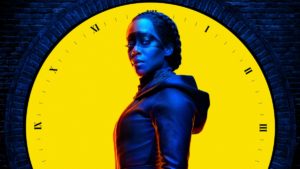Well we’re about to start another arbitrary cycle around our local star and that means it’s time to look back at what we’ve and answer for it. Wait, that didn’t come out right, it’s time for personal reflection and growth. Yeah, that sounds better.
Anyway, I have to say that this year has been a pretty good year for me.
Naturally, the biggest writing news is that Flame Tree Press purchased my novel Vulcan’s Forge with the publication set for March 28th, 2020. This was a joy and a surprise. Vulcan’s Forge, which languished on my former agent’s desk for a year unread, was a book I wrote entirely for myself. It was an experiment to see if I could sustain a cynical tone for an entire novel, and a labor for my love of film and the genre film noir in particular. Blending it with science fiction and making constant references to movies throughout the book Vulcan’s Forge is in one manner my most personal work.
In other aspects of my writing life I managed a few interesting short stories and one of my previously published works A Canvas Dark and Deep has been selected for reprint in the anthology Twilight Words coming in spring 2020.
My goal for 2020 is to have my next novel, Do We Not Bleed?, written by my birthday in mid-May. A detailed outline is already produced, and I have high hopes for this piece.
2019 was also the year I fully committed to listening to Podcasts. I have a number of fun, informative, and challenging podcasts on regular rotation. One that has been most surprising in just how fully engaged I have become with it is Scriptnotes, a podcast about screenwriting and things interesting to screenwriters.
Clearly with my love of movies screenwriting has always been a fascination with me. John August and Craig Mazin each week discus the business, craft, and art of screenwriting with many of the topics applicable to other forms of writing as well. They are also gamers, puzzle solvers, and entreatingly amusing people.
My day job continues to be good. I am so happy to be part of a vibrant strong union. Too many times before in my life I have been chewed up by petty bosses and it feels great having an organization at my back instead of being stabbed there.
IN gaming my sweetie-wife and I added Lords of Waterdeep to the regular rotation of our board and card game nights and it’s become very popular. In role play gaming I took a massive step into the past and began running a campaign of FGU’s Space Opera a game system I ran quite successfully for many years during the 1980s, PDFs of the rules are available at a quite reasonable price and it’s been fun, challenging, and amusing to engaged with the typo filled rulebook.
Here’s to looking to 2020 with hope, optimism, and confidence.

